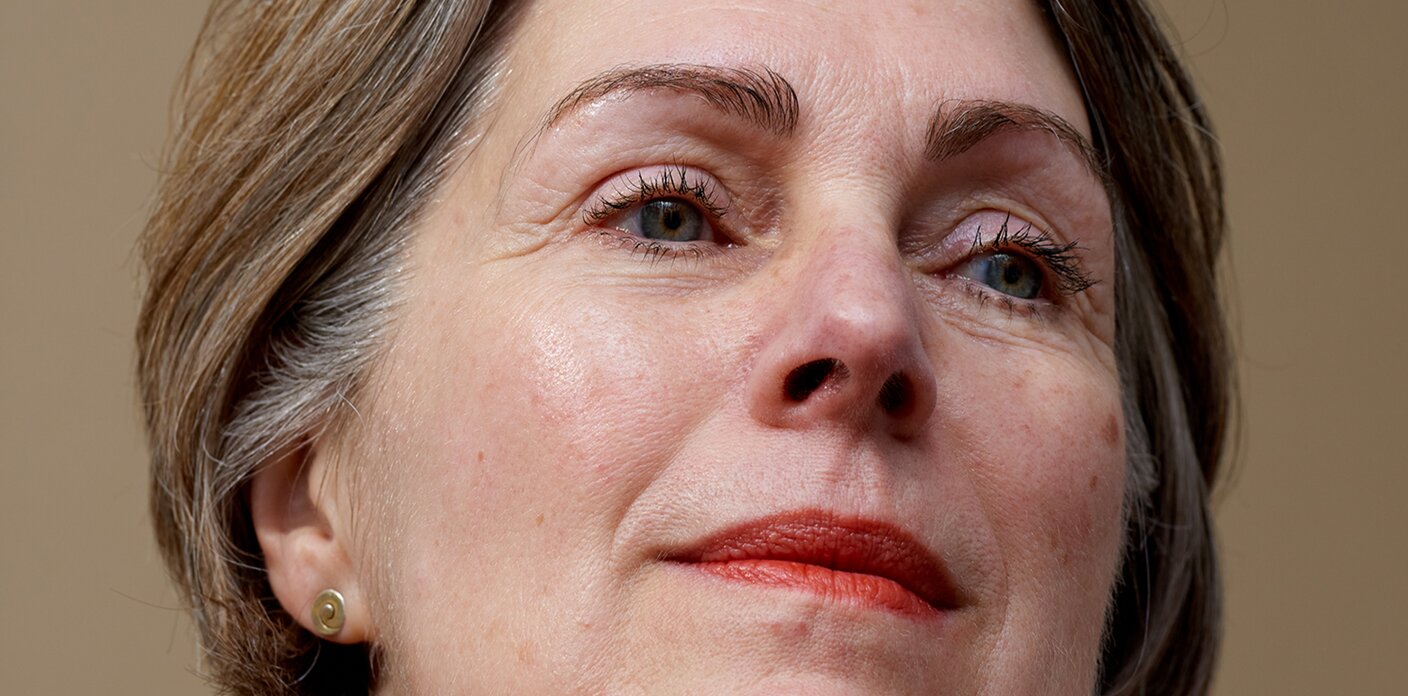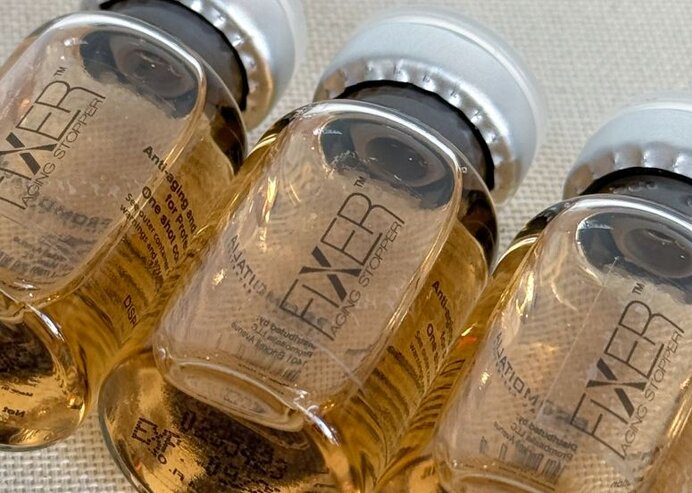
DOCTOR'S NOTE
All About Collagen
A primer on the protein that gives our skin strength and resilience, keeping it plump and wrinkle-free.
Key to maintaining both skin tone and skin health, collagen is a long, fibrous protein that the body produces naturally, contributing to our skin's structure and resilience and keeping it plump. Although collagen decreases as we age, there are a multitude of products and treatments to stimulate new collagen production and keep your complexion plump and toned. So, as it gives our skin vitality and elasticity, we recommend treating your collagen just as you would your delicates – with care and attention.
Read on for our Skin Laundry guide on how to protect and replace your skin’s collagen levels.
What is Collagen?
Collagen is the most abundant protein in the body. Its fiber-like structure gives our skin strength and resilience, keeping it plump and wrinkle-free.
Our bodies naturally produce collagen, but it decreases with age, starting in our mid-twenties and, for women, speeding up as we enter menopause. The result of decreased collagen production leads not only to fine lines and wrinkles, but also causes the skin to become thinner and drier.
There are also external factors that can lead to a drop in collagen production, including sun exposure, environmental pollution, smoking, alcohol consumption, and a lack of sleep and exercise.
As collagen levels decrease in the dermis (the middle layer of skin), our skin loses its strength, structure, and elasticity, leading to loss of skin tone and sagging.
What are the benefits of Collagen in the skin?
Collagen Boosts Elasticity
Collagen helps to maintain elasticity and firmness, which can help to reduce the appearance of fine lines and wrinkles.
Collagen Reduces Fine Lines and Wrinkles
Collagen can help minimize fine lines and wrinkles by improving skin elasticity and promoting cell turnover. Collagen also helps to strengthen the skin’s barrier and protect against environmental damage, which can lead to premature aging.
Collagen Improves Skin Hydration and Texture
Collagen helps to improve skin hydration and texture by promoting the production of Hyaluronic Acid, a natural humectant that helps to retain moisture in the skin and improve its appearance.
Collagen Reduces Scarring and Discoloration
Collagen can also help to reduce the appearance of scars and discoloration by promoting skin regeneration. Collagen can help stimulate the growth of new skin cells, which can help fade scars and improve overall skin tone and texture.
How to boost Collagen production
Replacing collagen is not as easy as adding a collagen supplement or cream to your daily routine. Despite the boom in collagen powders and drinks over the last few years, there is little evidence to support that ingesting collagen has any effect on the skin. Meanwhile, as a skincare ingredient, traditional animal-derived collagen molecules are too large to be effectively absorbed through the skin.
The good news is that there are effective ways to preserve existing collagen in the skin and stimulate our bodies’ natural production of this essential protein.
Here’s how:
The Skin Laundry Signature Laser Facial
The Skin Laundry Signature Laser Facial stimulates new collagen and elastin tissue production, leading to firmer, younger-looking skin over time.
The Skin Laundry Resurfacing Facial
The Skin Laundry Resurfacing Facial uses fractional technology to stimulate the production of collagen, increase cell turnover and create microchannels that enable greater absorption of products, like serums, into the skin.
Learn more about our Facials here.

Doctor's Note
Add Fixer to your Skin Laundry service for a collagen boost. This topical, peptide-based serum is formulated with Acetyl Hexapeptide-8 which has been proven to promote the skin's natural production of Type 1 Collagen.
Learn more about Fixer here.
Wear Sunscreen
Exposure to UV light damages collagen in the skin. In fact, UV radiation can cause collagen to break down at an even higher rate than normal aging. UV radiation is also one of the major creators of free radicals, which can also break down collagen. By limiting sun exposure and wearing a broad-spectrum SPF daily, you can prevent the degradation of existing collagen levels in the skin.
Exfoliate
Studies show that both chemical and physical exfoliation can stimulate the production of collagen. By removing the surface layer of dead cells, the skin is shocked into producing new cells, which helps stimulate new collagen production. Facial massage has also been shown to help stimulate the production of collagen, as it promotes circulation.
Incorporate Antioxidants Into Your Skincare Routine
Antioxidants work to prevent oxidative stress and free radical damage, which in turn both protects existing collagen in the skin and promotes new synthesis. Learn more about antioxidants and free radicals here.
Incorporate Vitamin A Into Your Skincare Routine
Vitamin A and Retinol have both been found to speed up the turnover of surface skin cells and boost collagen production.
Incorporate Vitamin C Into Your Skincare Routine
While widely hailed for its brightening and antioxidant properties, Vitamin C has also been proven to stimulate collagen production.
Incorporate Niacinamide Into Your Skincare Routine
Also known as Vitamin B3, Niacinamide helps build proteins in the skin and boosts production of both collagen and elastin.
Shop our dermatologist-approved skincare line here.
How To Choose a Sunscreen (and Why You Should Choose Ours)
The American Academy of Dermatology recommends the following when choosing a sunscreen:
1. Make sure the label says “broad spectrum.” The words broad spectrum mean that the sunscreen will protect your skin from both UVA and UVB rays.
2. Use an SPF 30 or higher, which can block about 97 percent of UVB rays.
Additional Reading
Your Shopping Bag
Your shopping bag is empty











